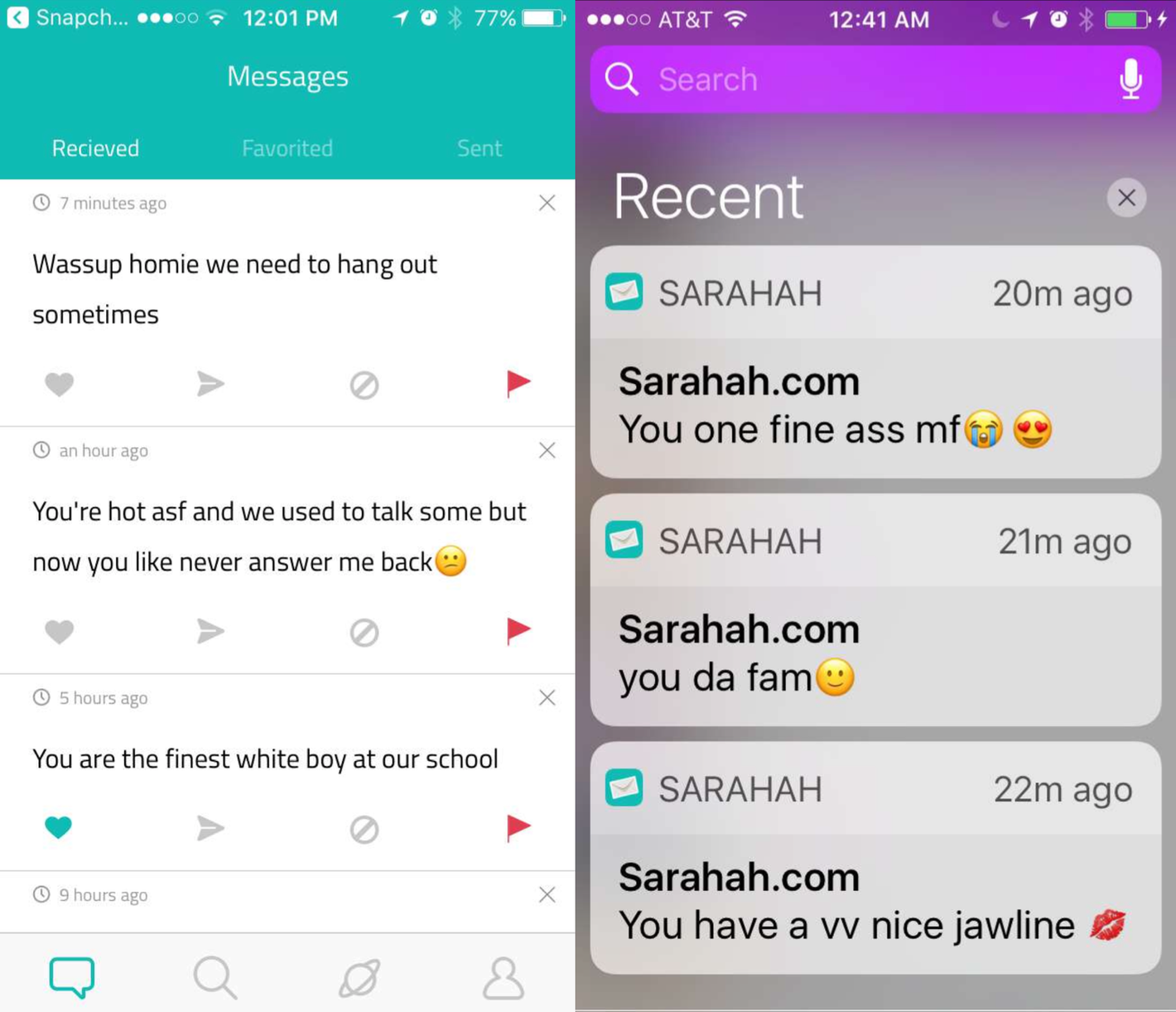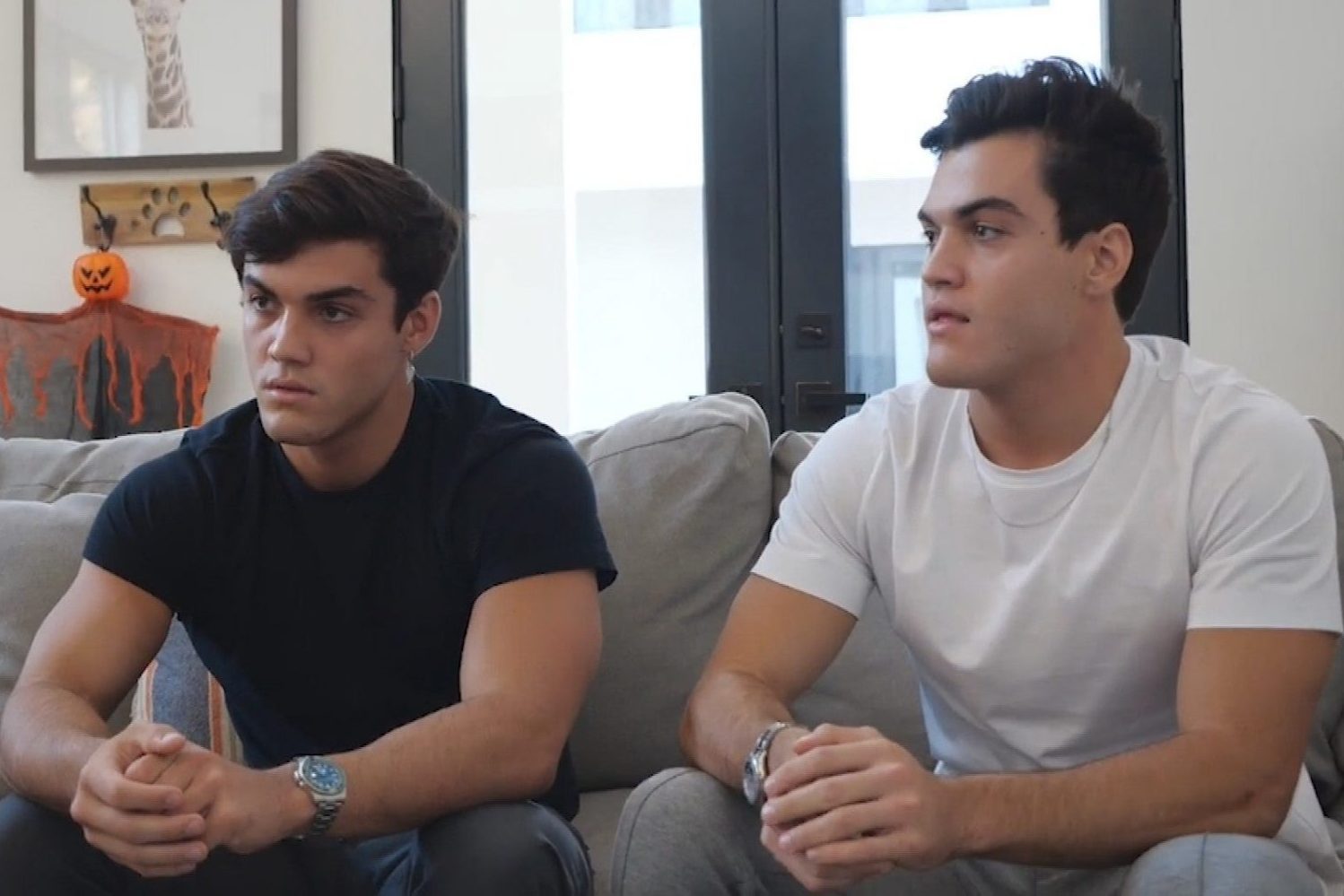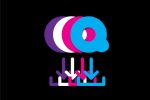Does anyone remember that awful website ask.fm from middle school, you know the one where you could anonymously message someone and be mean without consequences? Well, Sarahah is basically ask.fm’s younger sibling; the app, which roughly translates to “openness” and “candor” in Arabic, is an app and a website that allows users to anonymously message their friends and coworkers without fear of having their identity exposed.
According to their website, the intention of this platform is to “improve your friendship by discovering your strengths and areas for improvement” and “let your friends be honest with you.” You are not allowed to respond to any of the messages, and while there are different settings to help filter out the people whom has access to your inbox, you are ultimately given little control over who has permission to send you whatever they want. If that doesn’t sound like cyberbullying waiting to happen, then I don’t know what does.
Sarahah, however, wasn’t born to be just another teenager-infested hate app, it was actually created to give employees the opportunity to offer feedback to their bosses in a corporate setting to suggest areas for improvement without the fear of repercussions for their honesty. Zain al-Abidin Tawfiq, the developer from Saudi Arabia, noticed an issue in the workplace and wanted to create something to help people communicate frankly to their bosses. In this setting, Sarahah could prove to be very beneficial to many companies, especially in large corporate offices where the voices of those at the bottom of the totem pole may often be overlooked.
The website launched in fall 2016, and since then it has climbed its way up the charts to its current spot at number one in the App Store. It first began as a website exclusively in Saudi Arabia, then spread to other countries like Lebanon, Tunisia and Egypt, which is where it really began to take off. Tawfiq decided that his idea had real potential to expand, so he decided to create an app version, and hired a company to help with the development. On June 13, 2017, Sarahah made its first appearance in the App Store, which was also the first time the app was translated into English, which allowed users from countries like Canada, America and Australia to take part in the action.
There are currently fifteen million users on Sarahah, which begs the question, what exactly is it about this app that makes it so popular? Well, people just really love anonymity, the idea that you can say whatever you want and not be held responsible. In “Fortune’s” recent Tech Talk debate, writer Jeff John Roberts says, “This just keeps coming back, this desire for anonymous communication, to go out there and hear things for real; I think it’s a desire for authenticity.”
Unfortunately, for its many users, there was a rumor going around that Sarahah would be releasing all of the users’ identities this August, which instilled some serious fear in many of those who had been using the app to send hate messages. However, luckily for all those trolls out there, the official Sarahah Twitter account tweeted, “The #Sarahah team would like to state that the rumor about ‘exposing identities on August 1st’ is false,” and thus put to rest the rumor that people might have to actually own up to the messages they’ve been sending.
The app has also recently added a new feature that allows you to connect your Sarahah account to your Snapchat, allowing other people to message you directly though Snapchat and receive the messages via Sarahah. Since other users do not have access to view the messages that someone else has received, teens have opted to screenshot their messages and post them on their Snap stories for their friends to see.
The screenshots that actually get posted to Snapchat are typically very positive messages, like “You’re so pretty, but I’m too scared to tell you in person” or “I always see you around campus and you’re so nice.” Don’t be fooled though, just because people aren’t posting them (because really, who would advertise their own hate mail to all their friends), doesn’t mean that there aren’t some pretty awful messages being sent.

I personally have not downloaded the app, because honestly who wants to open an invitation for negativity? Even though apparently fifteen million people do, I think it’s important to remember that you’re sending a message to a real, living, breathing person with emotions and feelings, and they’re going to be affected by your words.
Someone posted, “My son signed up for an account and within twenty-four hrs. someone posted a horrible racist comment on his page including saying that he should be lynched…The site is a breeding ground for hate.” I mean, how terrible is that? There are other comments advising parents to not let their kids on the app in fear of bullying. In an era where online bullying is so prevalent, you would think people wouldn’t be jumping at the chance to make an anonymous messenger account, but that is evidently not the case.
Sarahah only has a two-star rating on the App Store, despite its spot at number one, with the majority of complaints being about glitches in the app itself and the idea that the platform basically promotes cyberbullying. Apparently, the app can work very slowly, log users out of their accounts and even force their phones to freeze and turn off; there are literally hundreds of comments about how the app doesn’t work properly.
If you take a quick scroll through the comments section for Sarahah, the negative ones definitely outweigh the positive. There is no doubt a reoccurring theme that Sarahah is not for the lighthearted and overall is a not a well-designed app. User “iHateRipOffApps” (convenient name) posted, “It promotes more cyberbullying than anything else because no one has to take responsibility for the things they say to others, they get to hide behind the anonymity. It’s not good!” Another user, “Jimmy Cooney,” said, “It’s literally ask.fm just a few years later, but this is a trend on Snap right now and it’s honestly really dumb.”
These users’ comments are but a small glimpse of all the various complaints regarding the app, so if you’re looking for a fully functioning, feel-good app, Sarahah probably is not for you.

















